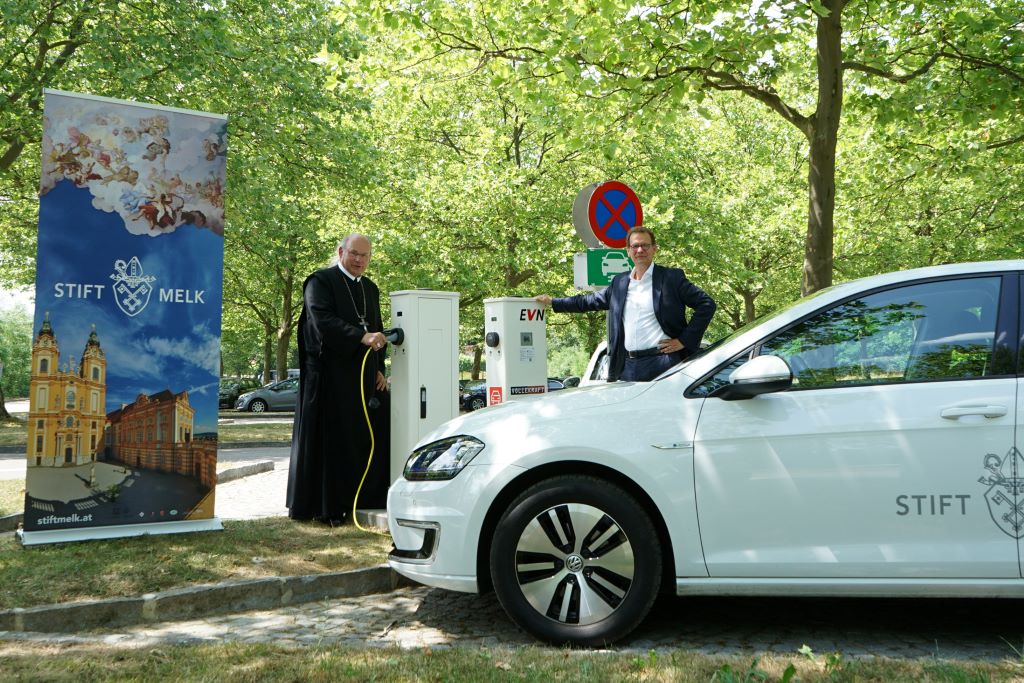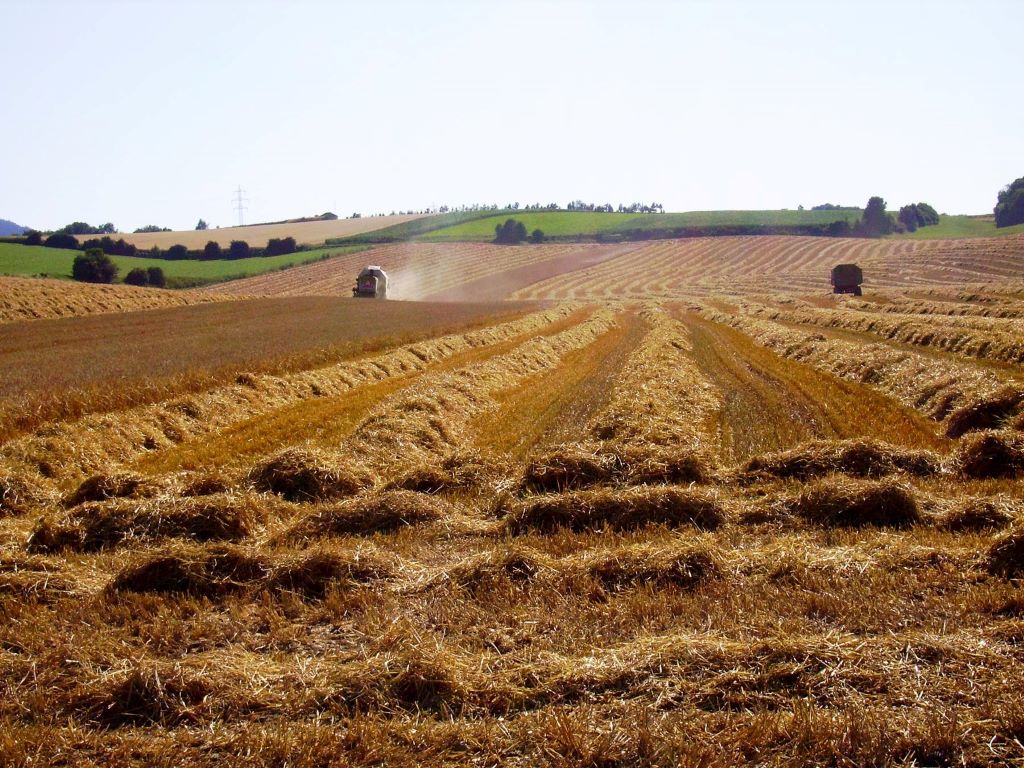Active Social Commitment & Sustainability
In his encyclical Laudato sí Pope Francis draws attention to the Earth’s environmental problems, addresses existing economic and social upheaval, and demands a “new solidarity” which we as humankind need to start practicing so as to leave something worth living for to the next generation.
Benedictines – Sustainability in the DNA
Saint Benedict’s Rule as the basis of monastic life and economic management can be re-read and reinterpreted in regard to the thought of Creation and to sustainability. It becomes clear that sustainability is inherent in the DNA of Saint Benedict’s monasteries.
In 2021 the monasteries of the Austrian Benedictine Congregation pledged to consciously confront the topic of sustainability and to adjust their actions accordingly: statutes were adapted, all monasteries will uniformly record their carbon footprint, and additionally the monasteries committed themselves to launch and evaluate suitable projects.
Sustainable Action
For Melk Abbey sustainability means to contemplate its actions from three equally important perspectives: ecologically, socially and economically. We want to – and must – develop sustainably in order to leave an ecologically, socially and economically intact world to the next generation.
Sustainable Projects in Melk Abbey
Some changes have been implemented, others are planned – many things have been self-evident for years!
“There are no great discoveries and advances, as long as there is an unhappy child on earth.” (Albert Einstein)
Social commitment is important to us – Saniob or Burkina Faso are two projects which have been close to our hearts for years.
Saniob
The foundation “Caritas Centru Social Sf. Stefan Saniob“ and the association “Auro-Danubia Stift Melk hilft Waisenkindern in Rumänien“ (“Auro-Danubia Melk Abbey helps orphans in Romania”) have championed our social projects for many years. Together they support street children, and socially disadvantaged children and adolescents. Their goal is to give a home to young people, regardless of linguistic or religious backgrounds.
A Hungarian minority lives 35 km north of Oradea, near the Romanian-Hungarian border. Our project is located there, in the small Romanian village of Saniob: we run a social center with two houses and provide for 25 children and adolescents who have found a new home there. At the same time the social project “Saniob” offers employment for many local women as trained youth and child care workers, social workers, and psychologists.
The center’s farm, joinery, shop, and sheep breeding station don’t generate nearly enough income to cover its costs. Auro-Danubia donates € 15.000,- every month in order to take care of the children, the employees and the running costs. The Dutch foundation “Stichting Caritas Oost Europe Schijndel“ assists, along with other large and small donors, enterprises, and private individuals to provide for the children.
To all of them we owe special thanks, and we kindly ask them to continue their support of the project.
Abbot Georg Wilfinger OSB is the patron of both the foundation CSS and the association Auro-Danubia. Once a month he comes to Saniob and invites you to go with him to experience the project on site.
To the social project Saniob’s web site
We help children in Burkina Faso
a social project of Melk Abbey
“In 2011 I was invited to the ordination of a priest in Burkina Faso. Fine, I thought, this is a good opportunity to get to know a completely new country and a completely new culture! I had never been to Africa before and have always been interested in this big continent. I was deeply impressed by the Burkinabe hospitality, by the cheerful people, by the musical rhythms, by the colors of the blossoms and the textiles,… But at the same time the hardship in the world’s third-poorest country weighed heavily on my mind. Already on my journey home I realized that this would not remain my only visit! I can’t act as if I had never been there: I need to do something!” Father Felix Fütterer OSB
To the social project Burkina Faso’s web site
In 2013 our photovoltaic installation went into operation, which was complemented in 2022 by a newly built large unit so as to produce even more renewable electricity. About 90% of the generated energy is used by the abbey, which corresponds to about 50% of its consumption.
Twenty years ago a biomass heating plant was built on the initiative of and for Melk Abbey in order to create a sustainable heat supply. By now, the biomass heating plant also supplies large parts of the town of Melk with sustainable short-distance heat, and produces green electricity along the way.

We drive two e-cars. Three charging stations were erected at the visitors’ parking lot in order to support our guests’ e-mobility.
For the park maintenance a small e-loader is used.
We live sustainably – because we use an old building, renovating and restoring it constantly. Its many rooms don’t stand empty – Austria’s oldest school is a wonderful example for resource conservation and long-term sustainable use.
We also act sustainably, because
- we consciously collaborate with regional enterprises, businesses, and craftspeople, and we decided to increasingly take heed of regionality and organic quality in our purchases.
- we are a regional employer for nearly 150 persons – predominantly women as well as many people over fifty – an age group which often has a hard time finding a job these days. We are proud that about 15% of all our staff have been working for Melk Abbey for 30 or more years!
- waste separation has long been a given, but in terms of recycling management we are in the early stages of planning as to how biogenic waste could be returned into our own production cycle as a resource.
What many are not aware of is that the internet consumes much energy. Our new web site was implemented in a sustainable and barrier free manner in order to reduce our digital carbon footprint.
